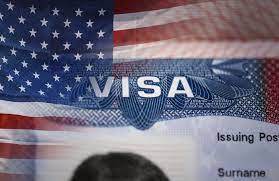WASHINGTON, Apr 29: A US federal agency has announced plans to modernise the H-1B registration process after detecting abuse and fraud by some companies to artificially boost their chances of winning the coveted visa for their skilled foreign workers in the computerised drawing of lots.
The H-1B visa is a non-immigrant visa that allows US companies to employ foreign workers in speciality occupations that require theoretical or technical expertise. Technology companies depend on it to hire tens of thousands of employees each year from countries like India and China.
In an unusual statement, US Citizenship and Immigration Services (USCIS) on Friday said, based on evidence from the Financial Year 2023 and Financial Year 2024 H-1B cap seasons, it has already undertaken extensive fraud investigations and denied and revoked petitions.
The USCIS, the federal agency that awards H-1B visas, said it is in the process of initiating law enforcement referrals for criminal prosecution.
It said that it has found that a small number of companies are responsible for entering the same applicants into the lottery multiple times, with the alleged goal of artificially boosting their chances of winning a visa.
“The H-1B programme is an essential part of our nation’s immigration system and our economy, and the USCIS is committed to implementing the law and helping meet the ever-changing needs of the US labour market,” it said.
“We are working on an upcoming H-1B modernisation rule that will propose, among other improvements, bolstering the H-1B registration process to reduce the possibility of misuse and fraud in the H-1B registration system,” it added.
The USCIS said during the registration period for the FY 2024 H-1B cap, it saw a significant increase in the number of registrations submitted compared to prior years.
It said there were 7,80,884 applications for H-1B visas in this year’s computer-generated lottery, against 4,83,927 in 2023 and 3,01,447 in 2022 and 2,74,237 in 2021.
Generally, it saw an increase in the number of registrations submitted, the number of registrations submitted on behalf of beneficiaries with multiple registrations, and the number of registrations submitted on behalf of unique beneficiaries with only one registration.
The number of registrations tied to people who applied more than once rose to 408,891 this year from 165,180 last year and 90,143 the year before, it said.
H-1B visas are issued for three years and can be extended another three years.
The federal agency warned that if the information provided by an applicant or a company was not correct, it will find the registration to not be properly submitted and the prospective petitioner would not be eligible to file a petition based on that registration.
The USCIS may deny a petition, or revoke a petition approval, based on a registration that contained a false attestation and was therefore not properly submitted.
“Furthermore, USCIS may also refer the individual or entity who submitted a false attestation to appropriate federal law enforcement agencies for investigation and further action, as appropriate,” it said.
A group of US tech workers, who are campaigning against the H-1B visas, said it has spoken about such a fraud for the past several years.
“The Trump administration had proposed a fix to the H-1B lottery by prioritising selection based on highest wages. You sued the administration so now you have to deal with the fraud that you are complaining about,” it said in a statement. (PTI)
Trending Now
E-Paper


